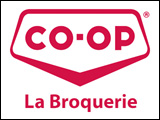A Canadian based international trade consultant suggests their are options available to ensure consumer access to information on the foods they purchase without restricting international trade.
Last May, in response to an order from the WTO to bring U.S. Mandatory Country of Origin Labelling into compliance with its international trade obligations, the U.S. added new labelling requirements and prohibited the mixing of product from different nations.
Last month the panel dealing with the dispute met in Geneva to address complaints from Canada and Mexico that the U.S. is still out of compliance.
Peter Clark, with Grey, Clark, Shih and Associates, says the final outcome has broad implications.
The WTO rules in effect say that you can regulate but you shouldn’t arbitrarily or unnecessarily inhibit trade and that’s what the dispute’s about.
The Americans claim that their consumers have a right to know where their meat comes from and we haven’t essentially disagreed with that but we suggest that the way that they’re doing that is causing an unnecessary trade burden.
The United States may have improved the type of information they provide to their consumers but as a practical matter they’ve made our situation worse.
We would hope that the WTO doesn’t basically allow people to stifle trade in the name of regulation or in the name of consumer information.
There’s lots of ways to provide consumer information without making it unattractive to import weanlings, hogs and beef cattle from Canada.
In the event the U,.S., is found to have failed to comply with the order to bring the labelling law into compliance Canada and Mexico will be entitled to impose retaliatory tariffs on imported U.S. products.
Although the WTO panel is expected to come down with its ruling some time this summer, the side that loses can be expected to appeal so a final decision is unlikely until mid-2015.



